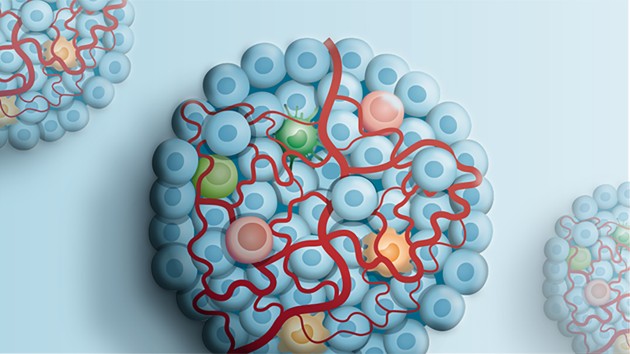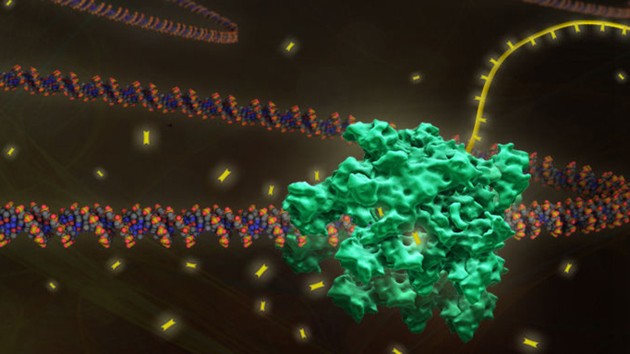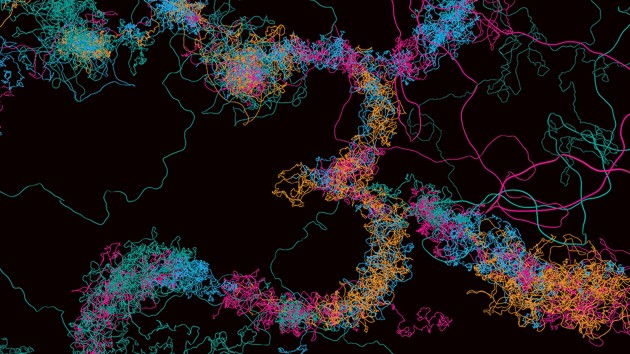Special |
Collections
Filters
-
Collection Type
-
-
Collection |
 Stem cells from development to the clinic
Stem cells from development to the clinic
New technologies to study stem cells have increased our knowledge about their physiological roles and contributions to development, ageing, regeneration and disease. This collection showcases research articles, reviews and protocols from across the Nature journals to highlight the striking advances made in basic and translational stem cell research.
Image: Benedetta Artegiani and Delilah Hendriks, Hubrecht Institute, Utrecht, The Netherlands. -
Special |
 TRACERx
TRACERx
Cancers evolve at a dynamic pace to adapt to immune pressure, colonize new niches, and evade therapy. Tracking these changes can help us improve diagnosis, better tailor therapies, and forestall recurrence, but it requires intensive monitoring beyond current clinical practice.
Image: Jeroen Claus / Phospho Biomedical Animation -
Special |
 Pan-Cancer Analysis of Whole Genomes
Pan-Cancer Analysis of Whole Genomes
Cancer is a disease of the genome, caused by a cell's acquisition of somatic mutations in key cancer genes.
Image: Nik Spencer/Nature -
Collection |
 The 3D genome
The 3D genome
This collection includes recent articles from across the Nature group of journals and showcases both the latest advances in the methodologies used to study genome organization, and our recent understanding of how genome organization and nuclear architecture regulate gene expression, cell fate and cell function in physiology and disease.
Image: V. Summersby -
Collection |
 Rare Cancers Collection
Rare Cancers Collection
This collection from the cancer editorial community at Nature Research journals focuses on highlighting work on rare cancers, from preclinical basic research to translational and clinical research.
Image: Simon Bradbrook/Springer Nature Limited -
Collection |
 Gut Microbiota
Gut Microbiota
This collection combines published Research articles and Reviews from several Nature journals highlighting recent advances in our understanding of the role of the gut microbiota in health and disease, and the tools for studying these complex communities.
Image: Brain light / Alamy Stock Photo -
Collection |
 Genetic and epigenetic insights into autoimmunity
Genetic and epigenetic insights into autoimmunity
Autoimmunity is an underlying cause of many diseases. This collection of Research, Reviews and News articles from several Nature journals covers the latest advances in genetic and epigenetic research into autoimmunity and autoimmune diseases.
Image: Susanne Harris -
Collection |
 The FANTOM5 Project
The FANTOM5 Project
A collection of research and data papers published across Nature Research, from the fifth cycle of the Functional ANnoTation Of the Mammalian genome project (FANTOM).
Image: Richard Janissen - TU Delft -
Collection |
 Cancer Evolution
Cancer Evolution
In this collection, the cancer editorial community of the Nature journals presents the most recently published articles on cancer evolution. The topic is discussed from different angles (preclinical, translational and clinical), and across a range of tumour types.
-
Collection |
 Human genetic variation
Human genetic variation
-
Focus |
Focus on Genomes of Icelanders
The largest-ever set of human genomes from a single population and the consequent insights into mutation, evolution, gene function and disease predisposition are reported in four linked papers. These results provide a strategy for the analysis of the full spectrum of genetic variation in any population and raise questions about how society should implement the knowledge gained. Produced with support from Illumina.

 ENCODE 3
ENCODE 3